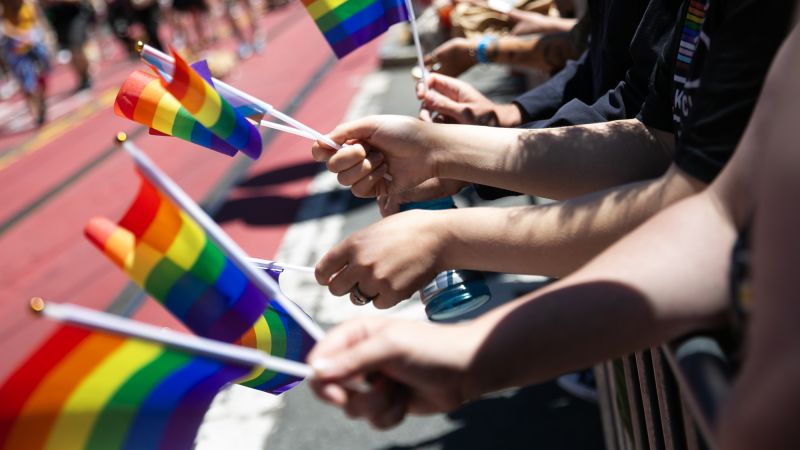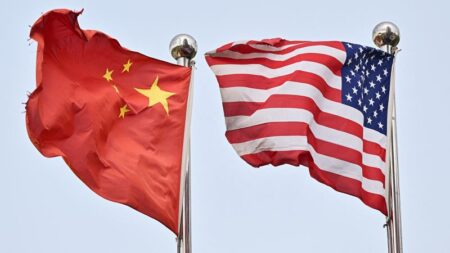In recent years, Pride Month has traditionally evolved into a vibrant celebration embraced by major brands. Stores displayed eye-catching rainbow flags, promoted LGBTQ-themed merchandise, and often altered their logos across social media platforms to signify their solidarity with the LGBTQ community. Companies also frequently highlighted their contributions to organizations advocating for LGBTQ rights, making June a month of visible support and engagement.
However, this year marked a notable shift. Many retail chains and brands opted for a more subdued approach during Pride Month, retreating from their usual overt displays of support. According to a survey conducted by Gravity Research, which included over 200 corporate executives, 39 percent indicated they intended to diminish their public engagements related to Pride Month. This scaling back encompasses a wide range of activities, from sponsoring Pride events to maintaining a presence on social platforms that advocate for LGBTQ rights and selling Pride-themed merchandise.
There appears to be a growing wariness among consumer brands regarding the potential backlash from conservative customers and activist groups. Many executives expressed concern about repercussions from the administration of former President Donald Trump, which posed threats to investigate companies promoting diversity, equity, and inclusion efforts. This apprehension stemmed from a broader climate of economic uncertainty magnified by ongoing tariffs and regulatory pressures.
Luke Hartig, president of Gravity Research, emphasized that the change in corporate strategy is evidently being driven by political dynamics. He stated that businesses feel increasing pressure to remain quiet on social justice issues to avoid inciting backlash and scrutiny.
This strategic pivot from embracing the exuberance of Pride Month reflects a deeper trend within corporate America, identified as a retreat from diversity and inclusivity initiatives amidst political pressure. Advocates from LGBTQ communities caution that the diminished presence of support not only stifles diversity but also could hinder companies from attracting and retaining talent, especially as the number of individuals identifying as LGBTQ in America has surged to 9.3% of the overall population.
This corporate hesitance also serves to alienate potential customers. Eric Bloem, from the Human Rights Campaign Foundation, articulated concerns that such withdrawal by companies creates a toxic environment that undermines workers’ rights and business viability. Many businesses have even opted out of the Human Rights Campaign’s corporate scorecard due to backlash.
Moreover, companies that only express support during favorable times face the risk of eroding trust and credibility with their stakeholders. The significant backlash experienced by brands like Bud Light and Target highlights the real consequences of politically charged corporate engagement. Following a controversial partnership with transgender influencer Dylan Mulvaney, Bud Light experienced a notable decline in sales, further compounded by criticism over its response to backlash from anti-trans activists.
Target, too, faced intense scrutiny from conservative factions for its Pride Month merchandise in 2023. Threats directed at employees over LGBTQ-friendly products and misleading online narratives about the company’s offerings forced it to amend its public engagement strategies significantly. In response to this, the brand announced a markedly reduced presence in stores while maintaining some online sales, showcasing a cautious approach to a celebration historically marked by vibrancy and inclusivity.
For its 2023 Pride Month, Target confirmed that it would offer a limited selection of pride-related merchandise in select stores and online while emphasizing a commitment to inclusivity within its workforce and the communities it serves.
Other brands, such as Kohl’s and Macy’s, have adopted similarly cautious stances this year when it comes to Pride Month activities, often refraining from making substantial announcements regarding their participation. This collective hesitance is reflected across various companies that either engaged less or rethought their approach from previous years. However, this doesn’t imply these corporations have completely withdrawn their support for the LGBTQ community.
SARAH KATE ELLIS, president of GLAAD, points out that many companies are engaging with LGBTQ employees and pioneering measures to boost internal recruitment and retention strategies, indicating a more nuanced approach. In fact, a survey indicated that only a mere 14% of businesses planned to reduce internal activities related to Pride Month.
In conclusion, while the corporate landscape appears to be navigating a complex social and political environment concerning Pride Month, many companies are actively re-evaluating how they support LGBTQ communities. Rather than retreating from inclusivity, organizations are adapting, seeking deeper engagement and support, albeit with a quieter presence during what was once a flamboyant celebration of LGBTQ pride and visibility.











